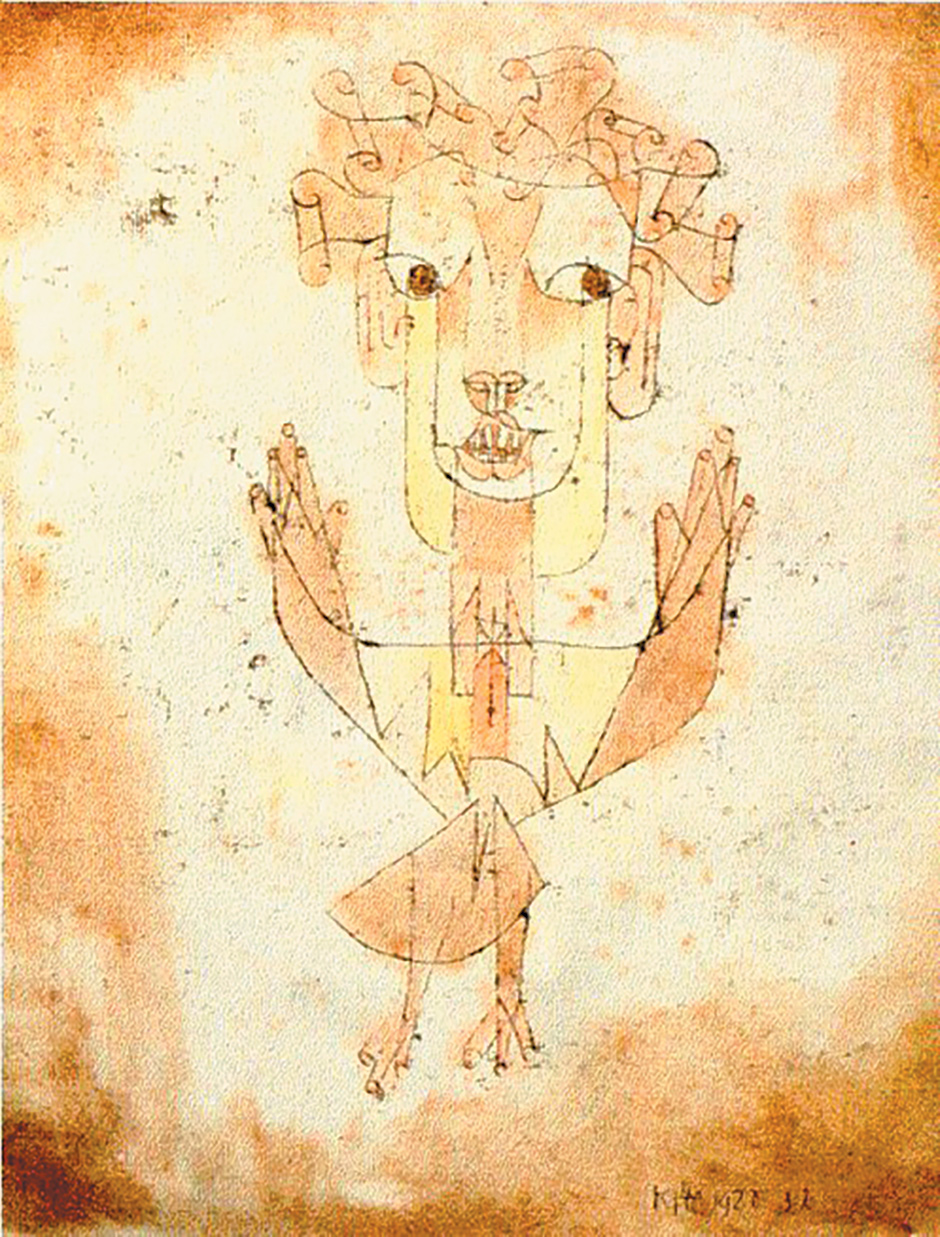
Paul Klee: Angelus Novus, 1920
For over two years Gaza has been referred to as the largest open-air prison on earth. Vivian Salama wrote yesterday: “Gaza has already been shut to the outside world for some 19 months, making it more of an open-air prison for its 1.5 million residents.”
And then Israel struck, and reminded the world that there are prisons within the prison. According to Amira Hass, “At noon Sunday, the Israel Air Force bombed a compound belonging to Gaza’s National Security Service. It houses Gaza City’s main prison. Three prisoners were killed. Two were apparently Fatah members; the third was convicted of collaborating with Israel. Hamas had evacuated most of the Gaza Strip’s other prisons, but thought this jail would be safe.” What is safety in a prison within a prison? According to the AP, “The bombing of the prison set free dozens of prisoners, who rushed out from their cells, carrying bags of clothes and blankets with them as they scrambled over rubble, fleeing Hamas police.” The prisoners were set free. What is freedom in the largest open-air prison in the world? Not much. As Amal Hassan, 38, a mother of three children, said, at the end of the same AP report: “My children are wetting the bed, they cry when they hear planes…I don’t know what’s going to happen next. Maybe the next bomb will fall here, maybe the next person killed will be one of us”. One of us. One of us?
Safety, freedom, prison. You know what happens to prisoners who are freed by Israeli weapons in Gaza? Ethan Bronner and Taghreed El-Khodary do: “In the fourth-floor orthopedic section [of Shifa Hospital], a woman in her late 20s asked a militant to let her see Saleh Hajoj, her 32-year-old husband. She was turned away and left the hospital. Fifteen minutes later, Mr. Hajoj was carried out by young men pretending to transfer him to another ward. As he lay on the stretcher, he was shot in the left side of the head.
“Mr. Hajoj, like five others killed at the hospital this way in 24 hours, was accused of collaboration with Israel. He had been in the central prison awaiting trial by Hamas judges; when Israel destroyed the prison on Sunday he and the others were transferred to the hospital. But their trials were short-circuited.
“A crowd at the hospital showed no mercy after the shooting, which was widely observed. A man in his 30s mocked a woman expressing horror at the scene.
“`This horrified you?’ he shouted. `A collaborator that caused the death of many innocent and resistance fighters?’
“Sobhia Jomaa, a lawyer with the Palestinian Independent Commission for Citizens’ Rights, said 115 accused collaborators were in the central prison. None had been executed by Hamas since it took office and their cases were monitored closely.
“`The prison provided the sole protection to all of them,’ she said. `But once it was bombed, many wanted to take revenge.’”
A woman came to find her husband, another woman explains, when prisoners are freed by invading forces, they are freed into the hands of revenge. None of them had been executed by Hamas.
The UN reports that as of the fourth day of the invasion, 320 Palestinians were killed, of whom 62 were civilians. In a separate report, a UNICEF spokesperson notes, “Civilians are paying the price.” Not for the bombing, although there is that, but rather “for a long blockade.”
When nations war, civilians suffer. It is tragic and it is never a great surprise, though many claim shock. But this, this is not nations going to war. This is one country bombing a prison in the name of national security and peace. The bombing of the prison set free … the angel of history: “This is how one pictures the angel of history. His face is turned toward the past. Where we perceive a chain of events, he sees one single catastrophe which keeps piling wreckage upon wreckage and hurls it in front of his feet. The angel would like to stay, awaken the dead, and make whole what has been smashed. But a storm is blowing in from Paradise; it has got caught in his wings with such violence that the angel can no longer close them. This storm irresistibly propels him into the future to which his back is turned, while the pile of debris before him grows skyward. This storm is what we call progress.” [Walter Benjamin, “Theses on the Philosophy of History”] What is progress in a prison within a prison? What is progress in the largest open-air prison in the world? This is.
(Image Credit: The New York Review of Books)